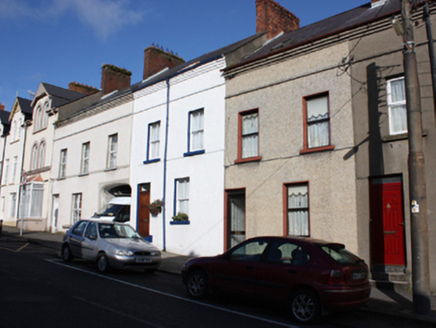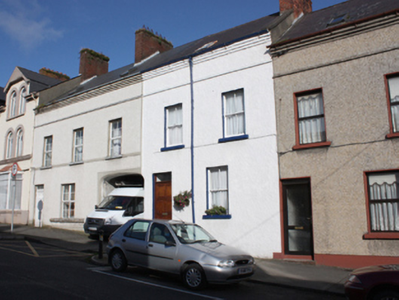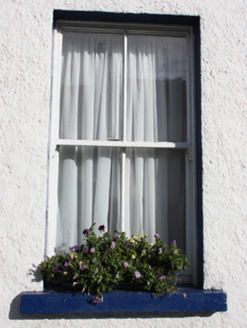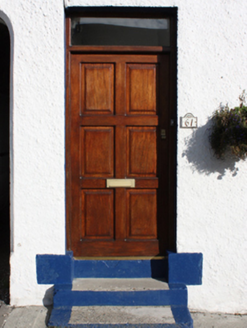Survey Data
Reg No
40815035
Rating
Regional
Categories of Special Interest
Architectural
Original Use
House
In Use As
House
Date
1860 - 1900
Coordinates
234971, 431840
Date Recorded
06/10/2008
Date Updated
--/--/--
Description
Attached terraced two-bay two-storey house, built c. 1880. One of a group of four along with the two buildings to the south and the building adjoining to the north. Pitched natural slate roof having stepped brick eaves course, raised rendered verge and red brick chimneystack to the south gable end, cast-iron rooflight, and with cast-iron rainwater goods. Roughcast rendered walls with stringcourse above first floor window openings. Square-headed window openings with stone sills, and two-over-two pane horned timber sliding sash windows. Square-headed door opening to the north end of the main elevation (west) having painted stone plinth-blocks and single access step, replacement timber door, and with plain overlight. Road-fronted to the south of the centre of Buncrana town centre. Integral carriage-arch with property adjoining to north.
Appraisal
This modest but appealing terraced house, of mid-to-late nineteenth-century date, retains its original form and character. Its visual appeal and integrity is enhanced by the retention of salient fabric such as the natural slate roof and the timber sliding sash windows. The pronounced stepped brick eaves course is an interesting feature that it shares with its neighbours to either side, which indicates that it was built as a terrace of four buildings. The cast-iron downpipe to the centre of the front elevation is a curious location for such a feature. This building originally dates from the period when Buncrana was a popular and expanding seaside resort, frequented by the middle classes of Derry, particularly following the opening of the railway line to the town in 1864. Buildings of this type were, until recent years, a ubiquitous feature of the streetscapes of small Irish towns and villages but are now becoming increasingly rare survivals due to demolition and insensitive alteration. This house is the best surviving building in a terrace of four buildings, and is an addition to the built heritage of Buncrana.







